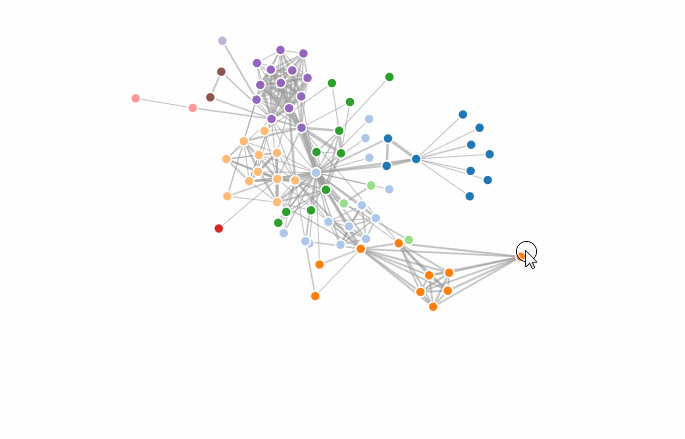

Solving complex industrial problem needs a comprehensive outlook and at times multi-disciplinary knowledge domain which includes engineering, science, technology and mathematics. We implement industrial digital transformation, solve technical requirements in process engineering, process modelling & simulation, control & automation, reliability engineering and cyber security, using Science, Technology, Engineering and Mathematics.
We are an email or call away.
Acadinnet is happy to announce the publication of a book titled ‘The Amazing World of Quantum Computing’ by Rajendra K. Bera, Chief Mentor at Acadinnet Scientific, published by Springer Nature, Singapore, March 2020.
https://link.springer.com/book/10.1007/978-981-15-2471-4LAP Lambert Academic Publishing publishes
Reality check on India's economic growth: Planning to fail or failing to
plan
by Rajendra K. Bera, Sunish Raj, Hiten Balsari
ISBN 978-3-8484-2573-0, Paperback
Bera, R.K., Raj, S., and Balsari, H., Comments on the Draft Approach to the 12th Five Year Plan of India, Acadinnet Commentary 2011-01, December 2011. Also as SSRN id 1968313, https://papers.ssrn.com/sol3/papers.cfm?abstract_id=1968313
Their comments are available at:
https://knowledge.wharton.upenn.edu/article/do-indias-planners-lack-innovative-thinking/Rajendra K. Bera, Sunish Raj, Hiten Balsari
When worldwide, universities are transitioning to become engines of economic growth, the self-created domestic disaster of India's education system going into a free-fall in terms of academic standards and the irrelevance of the education it provides has been India's biggest bottleneck in realizing its economic growth potential. In terms of knowledge creation, scientific discoveries, technological inventions, and even in imparting education at all levels, there has been a rapid decline in quality in the past two decades, leaving the country with an acute shortage of employable, university educated knowledge workers. Skill gaps are alarmingly high where higher-order skills are needed. Skill shortages in most industries continue to plague the growth of the Indian economy. Given these ground realities, rather than becoming the world's third largest economy by 2030, it is likely that India's economy will head towards a meltdown by then.
ISBN 978-3-8484-2573-0, Paperback
The book is now on sale;
http://www.amazon.com/Reality-check-Indias-economic-growth/dp/3848425734Rajendra K. Bera, Sunish Raj, Hiten Balsari
In this critique of the Planning Commission's draft Approach to the 12th Five Year Plan, the authors focus on two key aspects of the Indian economy - its rapidly declining education system, and its lack of a robust intellectual property system. If India is to maintain its economic growth these two systems must be overhauled thoroughly and quickly. We reason, barring a miracle, that India has no reasonable chance of becoming a country with the third largest GDP in the world in the coming two decades.
The full paper can be downloaded from https://papers.ssrn.com/sol3/papers.cfm?abstract_id=1968313 by clicking on the "One-Click Download" text-icon that appears on the screen.
Acadinnet is happy to announce the publication of a book titled ‘The Amazing World of Quantum Computing’ by Rajendra K. Bera, Chief Mentor at Acadinnet Scientific, published by Springer Nature, Singapore, March 2020.
https://link.springer.com/book/10.1007/978-981-15-2471-4LAP Lambert Academic Publishing publishes
Reality check on India's economic growth: Planning to fail or failing
to
plan
by Rajendra K. Bera, Sunish Raj, Hiten Balsari
ISBN 978-3-8484-2573-0, Paperback
Bera, R.K., Raj, S., and Balsari, H., Comments on the Draft Approach to the 12th Five Year Plan of India, Acadinnet Commentary 2011-01, December 2011. Also as SSRN id 1968313, https://papers.ssrn.com/sol3/papers.cfm?abstract_id=1968313
Their comments are available at:
https://knowledge.wharton.upenn.edu/article/do-indias-planners-lack-innovative-thinking/Rajendra K. Bera, Sunish Raj, Hiten Balsari
When worldwide, universities are transitioning to become engines of economic growth, the self-created domestic disaster of India's education system going into a free-fall in terms of academic standards and the irrelevance of the education it provides has been India's biggest bottleneck in realizing its economic growth potential. In terms of knowledge creation, scientific discoveries, technological inventions, and even in imparting education at all levels, there has been a rapid decline in quality in the past two decades, leaving the country with an acute shortage of employable, university educated knowledge workers. Skill gaps are alarmingly high where higher-order skills are needed. Skill shortages in most industries continue to plague the growth of the Indian economy. Given these ground realities, rather than becoming the world's third largest economy by 2030, it is likely that India's economy will head towards a meltdown by then.
ISBN 978-3-8484-2573-0, Paperback
The book is now on sale;
http://www.amazon.com/Reality-check-Indias-economic-growth/dp/3848425734Rajendra K. Bera, Sunish Raj, Hiten Balsari
In this critique of the Planning Commission's draft Approach to the 12th Five Year Plan, the authors focus on two key aspects of the Indian economy - its rapidly declining education system, and its lack of a robust intellectual property system. If India is to maintain its economic growth these two systems must be overhauled thoroughly and quickly. We reason, barring a miracle, that India has no reasonable chance of becoming a country with the third largest GDP in the world in the coming two decades.
The full paper can be downloaded from https://papers.ssrn.com/sol3/papers.cfm?abstract_id=1968313 by clicking on the "One-Click Download" text-icon that appears on the screen.